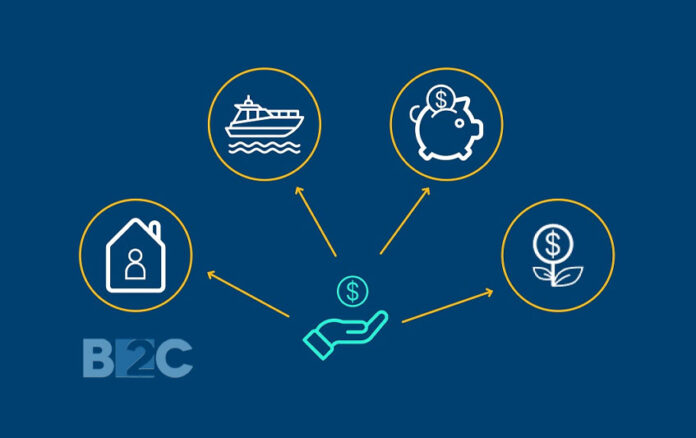Investment education has become increasingly crucial in today’s complex financial landscape. With innovations in fintech bringing a multitude of new investment platforms and products, it can be challenging for beginners to navigate the terrain. Continuous learning is essential to make informed investment decisions aligned with one’s financial goals.
The good news is there are now specialized apps and sites dedicated to investment education for various audiences. These platforms leverage technology to offer personalized and engaging learning experiences on core investment concepts and strategies. As investment education gains more mainstream appeal, these resources provide a low-barrier entry point for beginners.
In this blog post, we will explore some of the best investment apps and sites for education across categories:
Best Investment Apps for Education
- Top picks for beginners looking to understand investing
Best Investment Sites for Education
- Leading educational sites for investors
Types of Financial Literacy Apps
- Personal finance apps for different needs
Importance of Financial Literacy for Teens
- Specialized investment education apps for teens
Free Online Personal Finance Courses
- Academic courses for in-depth finance learning
Let’s get started!
Best Investment Apps for Education
Investment apps have revolutionized how beginners can learn about investing and finance. They leverage technology like mobile access, personalized recommendations, and gamification to provide engaging and simplified experiences.
Here are some of the top investment apps for education:
Betterment
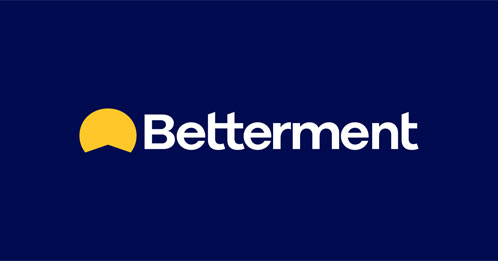
Key Features
- Interactive articles and visual lessons on investing basics
- Personalized quiz to determine investor type
- Portfolio recommendation based on risk appetite
- Easy account opening and automated investing
Overview
Betterment is one of the original robo-advisor apps, using algorithms to automate portfolio management. Beyond automated investing, Betterment has a dedicated educational vertical Betterment Learn.
Beginners can explore bite-sized lessons on investment strategy, retirement planning, tax optimization, and more through articles, videos, and quizzes. The app determines your level of knowledge through a quiz and provides tailored content for beginners or advanced learners.
Target Audience
Betterment education features are perfect for millennials and Gen Z investors looking for guided education on investing and personal finance.
User Experience
We found the Betterment educational experience to be extremely user-friendly, with conversational writing and fun quizzes to retain concepts. The app view offers convenience for quick learning on the go. Account opening for automated investing is also seamless.
Wealthfront
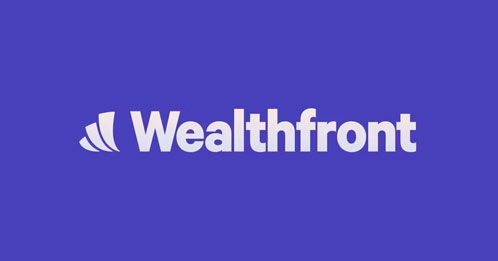
Key Features
- Self-paced online personal finance classes
- Tailored content based on account activity
- Robo-advisor makes portfolio recommendations
- Access to human financial planners
Overview
Wealthfront positions itself firmly as a next-gen financial advisor. While providing automated investment management services, education is also a key offering.
Users have access to Wealthfront’s personalized Path financial plan covering saving, spending, investing, retirement planning, homeownership, college planning and more.
The app also offers self-paced online classes that adapt to your usage and needs. So the content keeps getting more advanced as you build financial literacy.
Audience
The app is suited for high-net-worth individuals and families looking for an all-encompassing financial education aligned to life goals.
User Experience
We found the Path plan extremely comprehensive spanning all aspects of financial literacy. The smart content that evolves based on usage keeps it engaging for continuous learning. Integration with human advisors also ensures expert support when needed.
Invstr
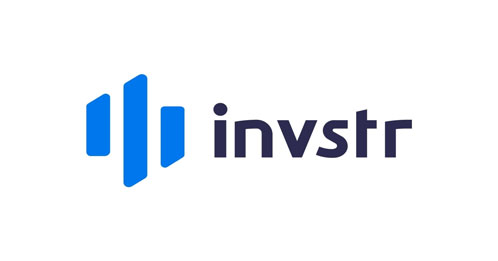
Key Features
- Bitesized investing explainers and guides
- Community feed for discussing concepts
- Virtual trading simulations
- Built-in news and data terminal
Overview
Invstr describes itself as a “financial literacy app that makes investment education fun”. The app focuses squarely on education for beginners through simplified content.
Users have access to easily understandable one-pagers on investment topics and a community feed for networking with fellow learners. The information is current with built-in stock market news and data.
The app also features virtual trading simulations so users can practice investing skills in real market conditions.
Audience
Invstr positions itself as an ideal first investing app for complete beginners, especially millennials and Gen Z. The fun gamification-based education approach resonates with younger investors.
User Experience
During our tests, we enjoyed Invstr’s TikTok-like interface to engage users as they build knowledge. The social community creates a judgment-free environment for beginners to clarify concepts through conversations. The virtual trading simulations did a good job of approximating real-world practices in a risk-free way.
Best Investment Sites for Education
Beyond apps, several online sites have proven to be leading destinations for investor education over the years. While apps prioritize bite-sized education, sites allow learners to immerse themselves more deeply. Let’s look at some top investment education sites.
The Motley Fool
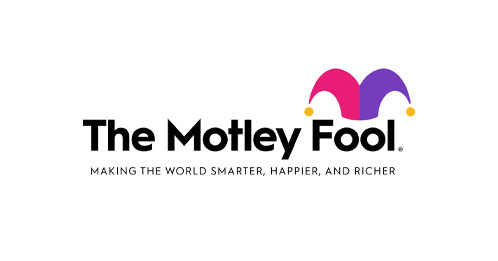
Key Offerings
- Timely and actionable stock recommendations
- Discussion boards with a 10 million+ community
- Podcasts, web series and talk shows
- Premium membership plans
Overview
The Motley Fool positions itself as an investment advisor cum financial literacy hub. Launched in 1993, the site has an extensive body of evergreen fundamental analysis content alongside real-time commentary.
Popular resources include the Motley Fool Money radio show, Rule Breakers podcast, dozens of member-exclusive stock recommendations updated daily based on market changes and more.
There is a vibrant community of investors discussing ideas and educating each other through posts and responses. Membership plans unlock premium content based on level.
Audience
The Motley Fool offerings cater to investors across the spectrum – from beginners looking for education to advanced investors and day traders seeking actionable ideas.
User Experience
During our tests, we found Motley Fool’s stock recommendations remarkably well-researched and up-to-date. The discussion boards feature smart conversations between community members. However, the volume of content across verticals can get overwhelming for someone starting.
Investing.com

Key Offerings
- Investment courses taught by Wall Street professionals
- Financial glossary and technical analysis education
- Platform for creating simulated trading portfolios
- Robust stock data, charts and tools
Overview
As a leading finance site, Investing.com focuses strongly on investor education alongside market data offerings. Resources include free courses for getting started, a detailed financial dictionary and simulated trading capabilities.
The education courses are taught by former Wall Street professionals, featuring video lessons and written modules with exams to test concepts. Subjects span technical analysis, options trading, stocks & ETFs, forex and more.
Users can also create simulated trading portfolios using Investing.com’s virtual money and backtest investment strategies in real market scenarios. Historical and intra-day charts across asset classes aid further analysis.
Audience
Investing.com education features cater well to active investors looking to develop and test their analytical and trading skills based on market dynamics. The courses and simulations suit investors who have conceptual clarity and want more applied knowledge.
User Experience
We found Investing.com simulated portfolios replicated actual brokerage experiences reasonably well, especially for stocks and ETFs. The courses strike a good balance between theory and application. While education is free, data insights need upgrading to premium plans.
Types of Financial Literacy Apps
Beyond dedicated investment education apps, there are a variety of financial literacy app categories based on objectives:
Allowance Apps
Allowance apps aim to impart money management skills for kids and youth in a practical manner. Top picks include:
- Greenlight – Provides kids with a debit card and app to manage chores and allowance tracking against parent-set goals.
- Rooster Money – Kids allocate virtual money across saving, spending and charity buckets and make real-world calculations.
- GoHenry – Prepaid cards help kids learn financial literacy as parents monitor their spending and set controls.
Investing Education Apps
These focus squarely on investment education fundamentals for beginners across asset classes:
- Stash – Simplifies concepts like ETFs, stocks, bonds through learning tools alongside an investment account.
- Public – Social community features alongside fractional stock investing helps discuss ideas for new investors.
Financial Knowledge Apps
General personal finance apps build overall money knowledge with budgeting tools:
- Mint – Tracks spending intuitively across credit cards, bank accounts, and investment portfolios and provides monthly financial snapshots.
- Personal Capital – Provides free financial dashboards and personal advisors to optimize money across budgets, net worth, retirement planning and more.
While allowance apps take a practical approach from a young age, investment and money management apps build important foundations for adults to manage finances responsibly.
Importance of Financial Literacy for Teens
Financial literacy from a young age ensures kids develop money management skills that will benefit them throughout life. Here are key reasons it is vital for teens:
1. Build Healthy Money Habits
As teens start earning money from side jobs, financial literacy helps them develop positive habits around saving, investing and conscious spending aligned to personal values. Apps can make it fun through gamification.
2. Navigate College Finances
Adding investment understanding helps teens prepare for significant future expenses like college fees and textbooks. Apps help project college costs and visualize saving toward these goals.
3. Prime for Responsible Adulthood
Learning investment discipline, compounding interest, wealth creation can motivate teens to make informed choices to achieve financial independence in adulthood.
4. Complement Academic Learning
While most academic curricula do not emphasize financial literacy, specialized apps can help teens reinforce math, economics, and accounting concepts picked up at school for practical use.
5. Apply Technology Positively
Rather than just entertainment media, apps present teachable moments for kids growing up as digital natives to harness technology for financial education.
Here are some investment education apps purpose-built for teens and youth:
BrightCHAMPS
Key Features
- Bite-sized investment explainers
- Stock tracking and leaderboards
- Virtual portfolios and trading
- Financial confidence assessment
Overview
BrightCHAMPS describes itself as a “fun, game-based investing app” to educate kids and teens about financial markets. Core offerings focus on building literacy around concepts like stocks, ETFs, mutual funds and more through relatable examples.
The app features leaderboards and contests to engage kids as they expand knowledge. It also allows adding real stocks to virtual watchlists and portfolios to track performance. Quizzes, weekly financial vocabulary builders and a confidence assessment quiz aid learning.
Audience
BrightCHAMPS targets children and teenagers between 8-18 years who are absolute investing beginners. The fun quiz-based education approach appeals to shorter attention spans.
User Experience
During our tests, we found BrightCHAMPS investing explainers to strike the right level for teens new to finance. We enjoyed the clean, comic-style interface. However, we found some virtual portfolio features like research resources to be too limited for advanced users.
Good Good Piggy
Key Offerings
- Interactive financial literacy quizzes and quests
- Retirement planning projections
- Budgeting and online bank account
- Cashback rewards and gift cards
Overview
Good Good Piggy focuses on imparting financial literacy for teens through educational quests alongside practical budgeting features.
The app offers quest journeys like Finance 101, Budget Boss and Credit Crush where teens answer quizzes covering topics from credit scores to tax returns to earn points redeemable for gift card rewards.
Teens can also open FDIC-insured bank accounts with pocket money budgets, custodial investment accounts with retirement projections. Cashback rewards are offered for completing healthy financial habits.
Audience
Good Good Piggy creates strong appeal for teens who prefer learning personal finance concepts indirectly through interactive quests while practicing principles like saving.
User Experience
During our experience, we enjoyed the quick yet informative financial literacy quizzes and simple quest structure with built-in incentives for knowledge application. However, we felt retirement projections needed more practical saving recommendations for teens.
These specialized apps make financial literacy engaging for teens based on interests like gaming and rewards rather than seeming like a chore. They lay strong money management foundations.
Free Online Personal Finance Courses
For investors looking to take a structured and academically-validated approach for comprehensive finance learning, reputed universities offer free online courses. These mirror undergraduate/graduate-level curricula adapted for virtual learning at one’s own pace.
Such courses help bridge gaps for self-taught investors in areas like economic theory while expanding overall financial analysis skillsets. Let’s look at some leading options:
Duke University Coursera Courses
Key Offerings
- Beginner to advanced finance courses
- Real-world exercises and case studies
- Graded quizzes and peer review
- Certification of completion
Overview
Duke University offers 4 finance courses on Coursera spanning corporate finance, Excel modeling, global capital markets and investment styles & portfolio management tactics optimized for virtual learning.
The courses are taught by Duke faculty and mirror on-campus classes in terms of detailed video lectures supplemented by hands-on case studies and dynamic quizzes/projects to apply learnings. We found the global capital markets course extremely insightful in explaining macroeconomic trends shaping real-time events.
Learners have flexibility to pace modules depending on prior knowledge but should plan for 8-10 hours of commitment weekly. Graded assignments and online peer reviews help incentivize completion instead of halfway dropouts.
Audience
The Duke courses cater perfectly to intermediate learners looking to elevate their finance knowledge across theory and practical domains beyond surface-level introductory resources. Some background in Excel, accounting, economics, and college-level math would be preferred prerequisites.
User Experience
We enjoyed the rigorous curriculum delivery standard we’ve come to expect from Ivy League education. Lecture delivery paired with real-world exercises achieved the right balance of conceptual depth with practical application. The community support and graded progress tracking also aided motivation and accountability.
McGill Personal Finance Essentials
Key Offerings
- Basics of personal finance
- Assessments for technique improvements
- Focus on behavioral finance aspects
- Certification upon completion
Overview
McGill University offers a free 5-week online course on Personal Finance Essentials covering financial planning principles for individual investors.
The curriculum focuses strongly on the psychology of money using scientific behavioral research. Core areas include assessing investor bias, building financial decision frameworks, analyzing credit options, insurance policies, taxes, mortgages, and planning for education and retirement costs.
We found the course remarkably well-adapted to address common pain points individuals face in money management thanks to rooting concepts in human behavior.
Audience
The course suits beginner and intermediate investors looking for structure and expert guidance in organizing their finances and investment portfolios aligned to life’s evolving priorities.
User Experience
During our experience, we appreciated the university pedigree and gold standard of education McGill is renowned for. The focus on habit formation, assessing investor behavior, and managing bias helped address beyond conceptual knowledge most financial education resources lack. We would strongly recommend it as a personal finance course to supplement investment learnings.
Conclusion
We’ve explored some of the best apps and sites for investment education across formats like game-based apps, simulated trading platforms, expert-run communities, and structured university-level courses.
Key takeaways include:
- Investment education apps Prioritize bite-sized, interactive content for beginners. Examples include Betterment, Wealthfront Invstr.
- Investment education sites Offer more comprehensive resources like courses, premium recommendations, and community discussions for savvier investors like Motley Fool and Investing.com.
- Financial literacy apps for teens Provide foundations in money management tailored to youth through quests, rewards systems, virtual portfolios, and more with picks like BrightCHAMPS and Good Good Piggy.
- Academic personal finance courses Offer rigor and credibility of structured curricula on finances and investing from stalwart institutions like Duke and McGill Universities.
While apps provide low-barrier entry points for beginners, dedicated education sites, simulation tools, and college-level courses enable investors looking to build advanced analytical skillsets in finance, economic trends, and data modeling over time.
The common thread across platforms is the focus on investor education as a lifelong journey amidst rapidly evolving markets.
Combining the collaborative power of community-sharing with personalized guidance from experts and leveraging technology innovations can create powerful synergies for investors to achieve financial independence.
We hope this blog post has helped you identify educational resources aligned to your investor journey today and where you want to be in the future!
